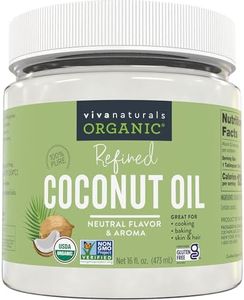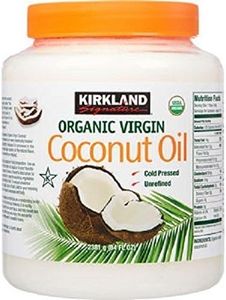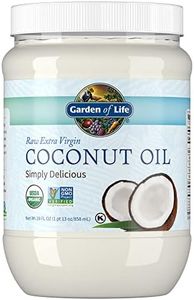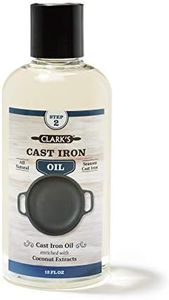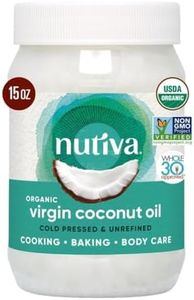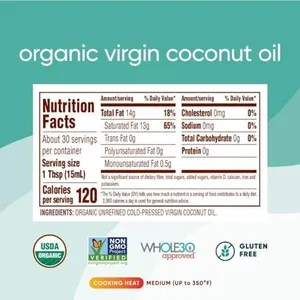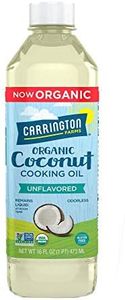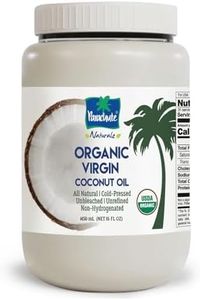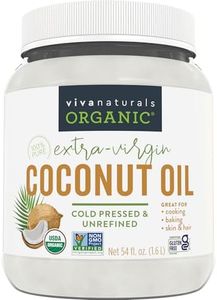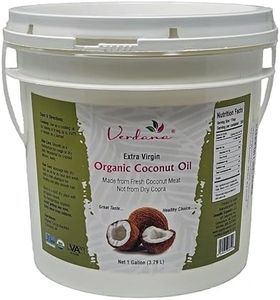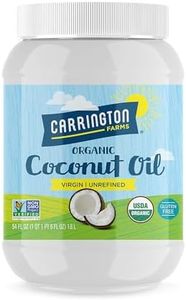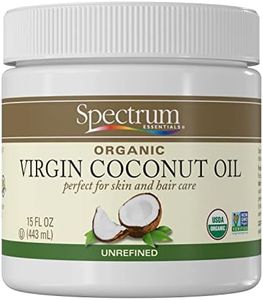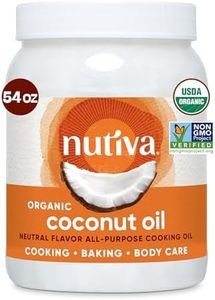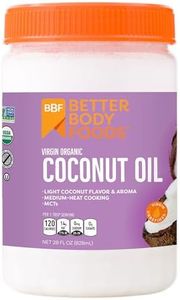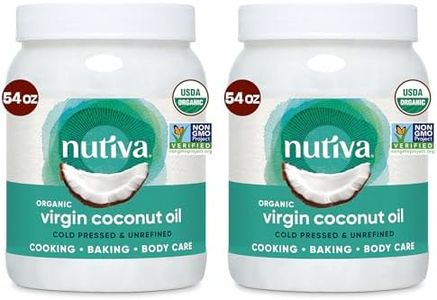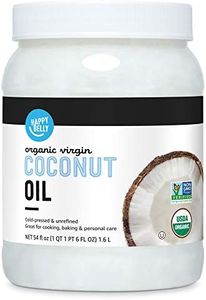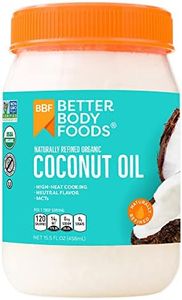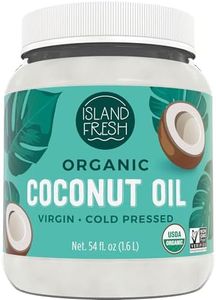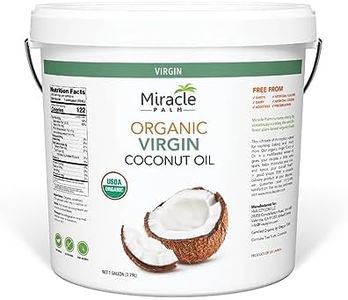10 Best Coconut Oil For Cooking 2025 in the United States
Winner
Viva Naturals Refined Coconut Oil - Expeller-Pressed Organic Coconut Oil for Cooking and Baking with Neutral Flavor & Aroma - USDA Organic Certified Hair Oil and Skin Moisturizer, 16 Fl Oz
Viva Naturals Refined Coconut Oil stands out as a versatile cooking and baking oil. Being expeller-pressed and refined, it offers a neutral flavor and aroma, which makes it suitable for various culinary applications without overpowering your dishes. Its high smoke point of 400°F (204°C) is ideal for frying, baking, and sautéing, providing flexibility in the kitchen.
Most important from
109361 reviews
100% Organic Extra Virgin,Coconut Oil,84 Fl .oz,beauty aid and cooking oil
Carrington Farms' 100% Organic Extra Virgin Coconut Oil is a versatile product suitable for both cooking and beauty purposes. With an impressive volume of 84 fluid ounces, it is ample for extended use. As it is extra virgin and unrefined, it retains most of its natural nutrients and flavor, making it a healthier choice for cooking.
Most important from
1412 reviews
Garden of Life Coconut Oil for Hair, Skin, Cooking - Raw Extra Virgin Organic, Pure Unrefined Cold Pressed Oil with MCTs for Body Care or Baking, Aceite de Coco Organico, 29 Fl Oz
The Garden of Life Coconut Oil is a versatile product that excels in various uses, including cooking, baking, body care, and even as a dietary supplement. This oil is raw, extra virgin, and cold-pressed, ensuring that it retains most of its natural nutrients and flavor. The fact that it is USDA Certified Organic and Non-GMO Project Verified adds to its credibility and appeal for those who prioritize organic and non-GMO products. Additionally, it is vegan, kosher, and gluten-free, making it suitable for a wide range of dietary needs and preferences.
Most important from
2998 reviews
Top 10 Best Coconut Oil For Cooking 2025 in the United States
Winner
9.7 score
Viva Naturals Refined Coconut Oil - Expeller-Pressed Organic Coconut Oil for Cooking and Baking with Neutral Flavor & Aroma - USDA Organic Certified Hair Oil and Skin Moisturizer, 16 Fl Oz
Viva Naturals Refined Coconut Oil - Expeller-Pressed Organic Coconut Oil for Cooking and Baking with Neutral Flavor & Aroma - USDA Organic Certified Hair Oil and Skin Moisturizer, 16 Fl Oz
Chosen by 1466 this week
100% Organic Extra Virgin,Coconut Oil,84 Fl .oz,beauty aid and cooking oil
100% Organic Extra Virgin,Coconut Oil,84 Fl .oz,beauty aid and cooking oil
Garden of Life Coconut Oil for Hair, Skin, Cooking - Raw Extra Virgin Organic, Pure Unrefined Cold Pressed Oil with MCTs for Body Care or Baking, Aceite de Coco Organico, 29 Fl Oz
Garden of Life Coconut Oil for Hair, Skin, Cooking - Raw Extra Virgin Organic, Pure Unrefined Cold Pressed Oil with MCTs for Body Care or Baking, Aceite de Coco Organico, 29 Fl Oz
Nutiva Organic Coconut Oil 54 fl oz, Cold-Pressed, Unrefined Cooking Oil, Natural Hair Oil, Skin Oil, Massage Oil, USDA Organic, Extra Virgin Coconut Oil (Aceite de Coco) (Pack of 2)
Nutiva Organic Coconut Oil 54 fl oz, Cold-Pressed, Unrefined Cooking Oil, Natural Hair Oil, Skin Oil, Massage Oil, USDA Organic, Extra Virgin Coconut Oil (Aceite de Coco) (Pack of 2)
Our technology thoroughly searches through the online shopping world, reviewing hundreds of sites. We then process and analyze this information, updating in real-time to bring you the latest top-rated products. This way, you always get the best and most current options available.

